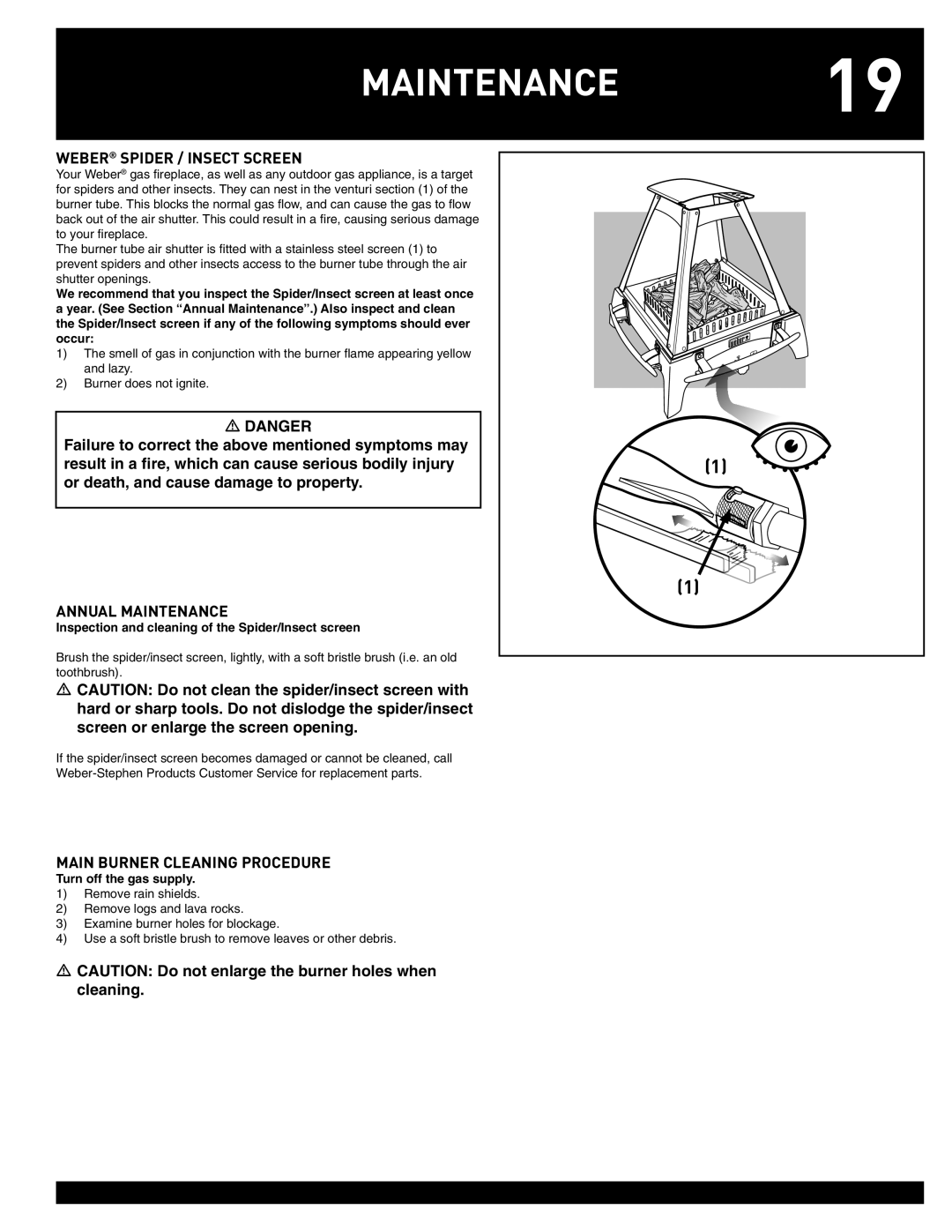
MAINTENANCE | 19 |
| |
WEBER® SPIDER / INSECT SCREEN |
|
Your Weber® gas fi replace, as well as any outdoor gas appliance, is a target |
|
for spiders and other insects. They can nest in the venturi section (1) of the |
|
burner tube. This blocks the normal gas fl ow, and can cause the gas to fl ow |
|
back out of the air shutter. This could result in a fi re, causing serious damage |
|
to your fi replace. |
|
The burner tube air shutter is fi tted with a stainless steel screen (1) to |
|
prevent spiders and other insects access to the burner tube through the air |
|
shutter openings. |
|
We recommend that you inspect the Spider/Insect screen at least once |
|
a year. (See Section “Annual Maintenance”.) Also inspect and clean |
|
the Spider/Insect screen if any of the following symptoms should ever |
|
occur: |
|
1) The smell of gas in conjunction with the burner fl ame appearing yellow |
|
and lazy. |
|
2) Burner does not ignite. |
|
DANGER |
|
Failure to correct the above mentioned symptoms may |
|
result in a fire, which can cause serious bodily injury | (1) |
or death, and cause damage to property. |
|
| (1) |
ANNUAL MAINTENANCE |
|
Inspection and cleaning of the Spider/Insect screen |
|
Brush the spider/insect screen, lightly, with a soft bristle brush (i.e. an old |
|
toothbrush). |
|
CAUTION: Do not clean the spider/insect screen with hard or sharp tools. Do not dislodge the spider/insect screen or enlarge the screen opening.
If the spider/insect screen becomes damaged or cannot be cleaned, call
MAIN BURNER CLEANING PROCEDURE
Turn off the gas supply.
1)Remove rain shields.
2)Remove logs and lava rocks.
3)Examine burner holes for blockage.
4)Use a soft bristle brush to remove leaves or other debris.
CAUTION: Do not enlarge the burner holes when cleaning.
